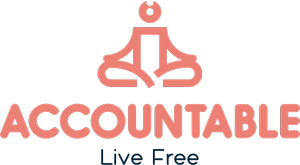The 2 Reasons Why People Relapse In the First Year of Recovery
The 2 Reasons Why People Relapse In the First Year of Recovery
As someone with 8 years of recovery under my belt, I’ve been so fortunate to see hundreds if not thousands of people recover from addiction. Like everything else in life, recovering from addiction is rarely ever perfect, and although the trend line is generally up and to the right, there are always at the very least emotional bumps, if not relapse, along the way.
I thought it might be helpful for others in the beginning or middle of their recovery journey to reflect on the two main reasons I’ve seen that people relapse early in recovery. I’d also love for you to share with me other reasons that I’ve missed so I can add them!
First, I thought it would be helpful to outline what I’ve seen as the two types of relapse and outcomes of each:
- Slip - Someone relapses for a day, or a short period of time and immediately resumes recovery. Generally, relapses stop after a slip because the consequences of restarting the addiction are immediate, and/or they are enrolled in a program like You Are Accountable, where the individual's support team is notified immediately to intervene in the situation. Generally, this is a good learning experience for the individual and helps them gain insight into their addiction that they may have been lacking. If the individual is able to resume recovery on their own, and this is an isolated incident, a higher level of care may not be necessary, but additional support, such as increased monitoring or therapy, is generally a good idea. Either way, always consult with your clinical team.
- Run - This is a longer relapse, or multiple short recurring relapses. Many times the relapse goes undetected for a period of time (we are sneaky), and the individual very quickly picks up their addiction right where it left off before they started on their recovery journey. Generally, after a run, a higher level of care is prudent and should be discussed with the individual’s clinical team.
What I’ve never seen in the last 8 years is someone who has gotten sober, realized it was a “mistake”, and went on drinking or using drugs with impunity into the future. I’m sure this individual exists somewhere, but I haven’t met them yet.
Consequences of a Relapse (Free Naloxone Prescription Below)
The consequences of any relapse run the gamut from causing a little damage in your personal life, to death. I’ve personally had far too many friends in recovery die, and encourage everyone who is in recovery or loves someone in recovery to pick up Naloxone (Narcan), the opioid reversal drug. If the state where you are requires a prescription for Naloxone, you can get your free prescription here:
https://hightruths.com/free-naloxone-prescription/
Here are the two main reasons I’ve seen people relapse in their first year of recovery:
- “I Got This”
You’re doing amazing! You feel good! Your life is getting better and you’re starting to get the gifts of recovery! Maybe you’ve been sober for 90 days, 6 month, or even a year! You’re in therapy, you’re going to meetings, maybe you’re even involved in You Are Accountable. You start to feel like all the recovery activities in your life are overkill. So you decide to start cutting them out, because you feel good and life has gotten busy!
Every time I have this conversation with someone, I try to remind them that they feel good
BECAUSE
they have been doing all these things to work on their recovery, not in spite of them. I encourage individuals that feel this way to not stop, but DOUBLE DOWN, on the things that have gotten them to where they are today especially if they are in the first 18 months of recovery.
2. Life isn’t getting any better.
Recovery is freaking hard. Literally the hardest thing I’ve ever done personally. Generally, by the time someone seeks recovery their life has gotten so out of control that it is quite literally the last option.
As an addict, I’m used to being in control of “feeling better”. I can “choose” to take a pill/drink/substance, and feel better in a matter of minutes.
Unfortunately, once you get sober, and you’re faced with all the wreckage of your past that has built up over year(s), there is no quick fix.
Relationships aren’t healing at all, or at the very least on your time frame, no one trusts you, you can’t even trust yourself, your professional life is a mess, your finances are in a mess, and everything in general just feels overwhelming and unmanageable.
The hard truth here is that the only thing you can do in this situation is double down on working on your own recovery, take it a day at a time, and really identify with those recovering around you and try to identify with the subtle ways their lives are improving. Personally, I’ve always found it easier to see improvement in others before I can see it in myself.
I can promise you that it will get better if you stick with it.Your life may not end up looking exactly what you envisioned it to be, but you’ll also find over time that it is better and that it was worth it. Give it today, give it a year, or better yet give it 18 months. You can always go back to what you were doing.
Recovery friends and professionals, I’d love your thoughts on this one! What have I missed, what would you add?




hello@youareaccountable.com
(646) 450-7641